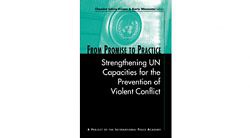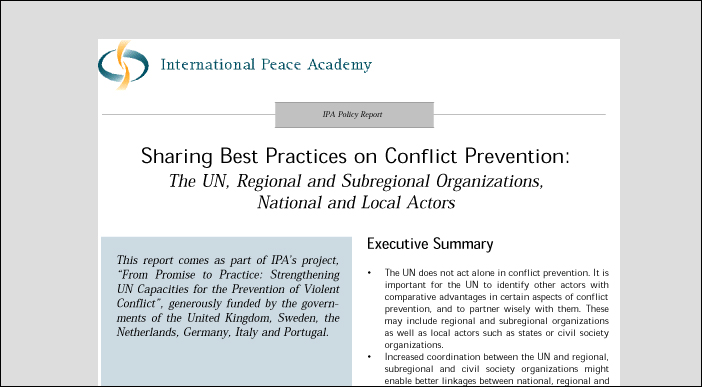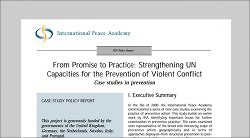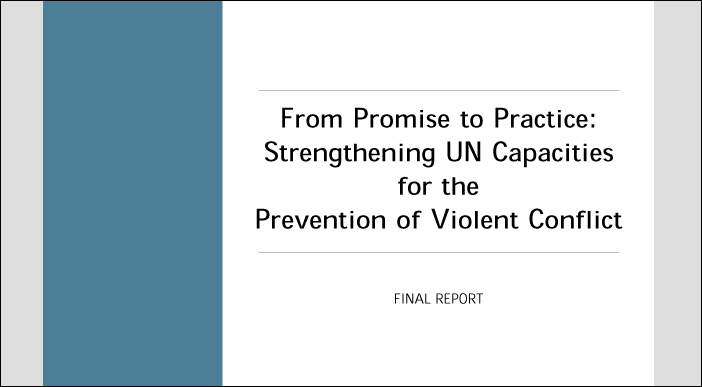
How can the United Nations, regional and subregional organizations, government donors, and other policymakers best apply the tools of conflict prevention to the wide range of intrastate conflict situations actually found in the field?The detailed case studies and analytical chapters in this book offer operational lessons for fashioning strategy and tactics to meet the challenges […]
Read more










